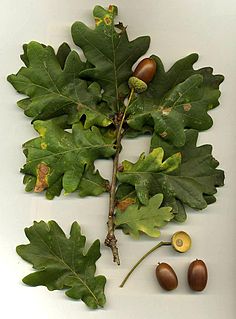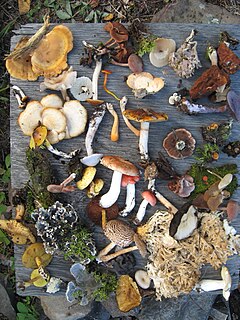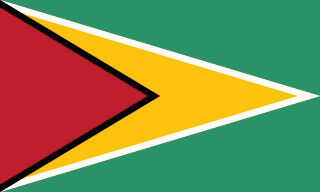
California is a state on the West Coast of the United States. With over 39.3 million residents across a total area of approximately 163,696 square miles (423,970 km2), it is the most populous state and the third-largest state by area. It is also the most populated subnational entity in North America and the 34th most populous in the world. The Greater Los Angeles area and the San Francisco Bay Area are the nation's second and fifth most populous urban regions respectively, with the former having more than 18.7 million residents and the latter having over 9.6 million. Sacramento is the state's capital, while Los Angeles is the most populous city in the state and the second most populous city in the country. Los Angeles County is the country's most populous, while San Bernardino County is the largest county by area in the country. San Francisco, which is both a city and county, is the second most densely populated major city in the country and the fifth most densely populated county in the country, behind four of New York City's five boroughs.

A lynx is any of the four species within the medium-sized wild cat genus Lynx. The name lynx originated in Middle English via Latin from the Greek word λύγξ, derived from the Indo-European root leuk- in reference to the luminescence of its reflective eyes.

An oak is a tree or shrub in the genus Quercus of the beech family, Fagaceae. There are approximately 500 extant species of oaks. The common name "oak" also appears in the names of species in related genera, notably Lithocarpus, as well as in those of unrelated species such as Grevillea robusta and the Casuarinaceae (she-oaks). The genus Quercus is native to the Northern Hemisphere, and includes deciduous and evergreen species extending from cool temperate to tropical latitudes in the Americas, Asia, Europe, and North Africa. North America contains the largest number of oak species, with approximately 90 occurring in the United States, while Mexico has 160 species of which 109 are endemic. The second greatest center of oak diversity is China, which contains approximately 100 species.

Biodiversity is the biological variety and variability of life on Earth. Biodiversity is typically a measure of variation at the genetic, species, and ecosystem level. Terrestrial biodiversity is usually greater near the equator, which is the result of the warm climate and high primary productivity. Biodiversity is not distributed evenly on Earth, and is richer in the tropics. These tropical forest ecosystems cover less than 10 percent of earth's surface, and contain about 90 percent of the world's species. Marine biodiversity is usually higher along coasts in the Western Pacific, where sea surface temperature is highest, and in the mid-latitudinal band in all oceans. There are latitudinal gradients in species diversity. Biodiversity generally tends to cluster in hotspots, and has been increasing through time, but will be likely to slow in the future as a primary result of deforestation.

A tuna is a saltwater fish that belongs to the tribe Thunnini, a subgrouping of the Scombridae (mackerel) family. The Thunnini comprise 15 species across five genera, the sizes of which vary greatly, ranging from the bullet tuna up to the Atlantic bluefin tuna. The Atlantic bluefin averages 2 m (6.6 ft), and is believed to live up to 50 years.

Extinction is the termination of a kind of organism or of a group of kinds (taxon), usually a species. The moment of extinction is generally considered to be the death of the last individual of the species, although the capacity to breed and recover may have been lost before this point. Because a species' potential range may be very large, determining this moment is difficult, and is usually done retrospectively. This difficulty leads to phenomena such as Lazarus taxa, where a species presumed extinct abruptly "reappears" after a period of apparent absence.

A mangrove is a shrub or small tree that grows in coastal saline or brackish water. The term is also used for tropical coastal vegetation consisting of such species. Mangroves occur worldwide in the tropics and subtropics, mainly between latitudes 25° N and 25° S. The total mangrove forest area of the world in 2000 was 137,800 square kilometres (53,200 sq mi), spanning 118 countries and territories.

The Old World flycatchers are a large family, the Muscicapidae, of small passerine birds mostly restricted to the Old World. These are mainly small arboreal insectivores, many of which, as the name implies, take their prey on the wing. The family includes 324 species and is divided into 51 genera.

Murex is a genus of medium to large sized predatory tropical sea snails. These are carnivorous marine gastropod molluscs in the family Muricidae, commonly called "murexes" or "rock snails".

Monkey is a common name that may refer to groups or species of mammals, in part, the simians of infraorder Simiiformes. The term is applied descriptively to groups of primates, such as families of New World monkeys and Old World monkeys. Many monkey species are tree-dwelling (arboreal), although there are species that live primarily on the ground, such as baboons. Most species are mainly active during the day (diurnal). Monkeys are generally considered to be intelligent, especially the Old World monkeys of Catarrhini.

Malaysia is a country in Southeast Asia. The federal constitutional monarchy consists of thirteen states and three federal territories, separated by the South China Sea into two regions, Peninsular Malaysia and Borneo's East Malaysia. Peninsular Malaysia shares a land and maritime border with Thailand and maritime borders with Singapore, Vietnam, and Indonesia. East Malaysia shares land and maritime borders with Brunei and Indonesia and a maritime border with the Philippines and Vietnam. Kuala Lumpur is the national capital and largest city while Putrajaya is the seat of the federal government. With a population of over 32 million, Malaysia is the world's 43rd-most populous country. The southernmost point of continental Eurasia is in Tanjung Piai. In the tropics, Malaysia is one of 17 megadiverse countries, home to a number of endemic species.

Australia, officially the Commonwealth of Australia, is a sovereign country comprising the mainland of the Australian continent, the island of Tasmania, and numerous smaller islands. It is the largest country in Oceania and the world's sixth-largest country by total area. Its population of nearly 26 million is highly urbanised and heavily concentrated on the eastern seaboard. Australia's capital is Canberra, and its largest city is Sydney. The country's other major metropolitan areas are Melbourne, Brisbane, Perth, and Adelaide.
ARKive was a global initiative with the mission of "promoting the conservation of the world's threatened species, through the power of wildlife imagery", which it did by locating and gathering films, photographs and audio recordings of the world's species into a centralised digital archive. Its priority was the completion of audio-visual profiles for the c. 17,000 species on the IUCN Red List of Threatened Species.

Turritella is a genus of medium-sized sea snails with an operculum, marine gastropod mollusks in the family Turritellidae.

Heterodonta is a taxonomic subclass of saltwater clams, marine bivalve molluscs. This subclass includes the edible clams, the cockles and the Venus clams.

Guyana, officially the Co‑operative Republic of Guyana, is a country on the northern mainland of South America and the capital city is Georgetown. Guyana is bordered by the Atlantic Ocean to the north, Brazil to the south and southwest, Venezuela to the west, and Suriname to the east. With 215,000 square kilometres (83,000 sq mi), Guyana is the third-smallest sovereign state by area in mainland South America after Uruguay and Suriname; it is also the second-least populous sovereign state in South America after Suriname.
The World Register of Marine Species (WoRMS) is a taxonomic database that aims to provide an authoritative and comprehensive list of names of marine organisms.

Alvania is a genus of minute sea snails, marine gastropod mollusks or micromollusks in the family Rissoidae.
The Plant List is a list of botanical names of species of plants created by the Royal Botanic Gardens, Kew and the Missouri Botanical Garden and launched in 2010. It was intended to be a comprehensive record of all known names of plant species over time, and was produced in response to Target 1 of the 2002-2010 Global Strategy for Plant Conservation, to produce "An online flora of all known plants.” It has not been updated since 2013, and is superseded by World Flora Online.

Shrimp are decapod crustaceans with elongated bodies and a primarily swimming mode of locomotion – most commonly Caridea and Dendrobranchiata. More narrow definitions may be restricted to Caridea, to smaller species of either group or to only the marine species. Under a broader definition, shrimp may be synonymous with prawn, covering stalk-eyed swimming crustaceans with long narrow muscular tails (abdomens), long whiskers (antennae), and slender legs. Any small crustacean which resembles a shrimp tends to be called one. They swim forward by paddling with swimmerets on the underside of their abdomens, although their escape response is typically repeated flicks with the tail driving them backwards very quickly. Crabs and lobsters have strong walking legs, whereas shrimp have thin, fragile legs which they use primarily for perching.

















